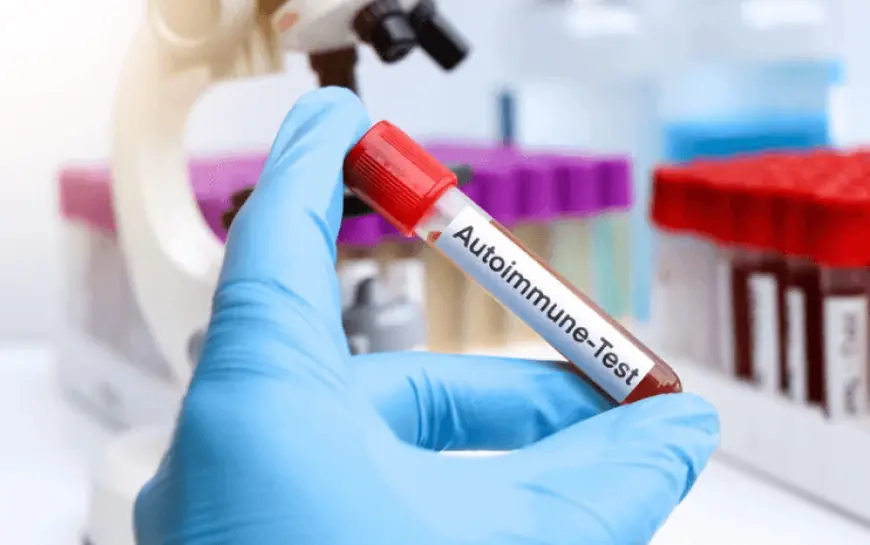Blood Test at Home for Autoimmune Diseases: What’s Available?

Autoimmune diseases can be complex to diagnose, often requiring multiple tests and doctor visits. However, advancements in medical technology now allow individuals to take a Blood Test at home Dubai to screen for autoimmune conditions. This convenience saves time, reduces stress, and provides valuable insights into one’s health. But what options are available? How accurate are these tests? And what should you consider before ordering one?
This article explores the current landscape of blood test at home services for autoimmune diseases, helping you make informed decisions about your health.
Understanding Autoimmune Diseases and Blood Testing
Autoimmune diseases occur when the immune system mistakenly attacks the body’s own tissues. Conditions like rheumatoid arthritis, lupus, celiac disease, and Hashimoto’s thyroiditis fall under this category. Diagnosing these conditions often involves detecting specific antibodies or inflammatory markers in the blood.
Traditionally, diagnosing autoimmune diseases required lab visits, but now, several companies offer blood test at home kits that allow you to collect samples conveniently and send them to a lab for analysis.
How Does a Blood Test at Home Work?
A blood test at home for autoimmune diseases typically follows these steps:
Ordering the Test Kit
You can purchase a test kit online from a certified provider. The kit includes everything needed for sample collection—lancets, collection tubes, antiseptic wipes, and detailed instructions.
Collecting the Blood Sample
Most at-home tests use a finger-prick method, which is less invasive than traditional venipuncture. After cleaning the finger, a small lancet pricks the skin, and a few drops of blood are collected in a vial or on a test strip.
Sending the Sample to the Lab
Once collected, the sample is placed in a prepaid return package and sent to a certified laboratory for analysis. Results are usually available online within a few days to a week.
Receiving and Interpreting Results
The lab generates a detailed report, often highlighting key markers such as:
-
ANA (Antinuclear Antibodies) – Screens for lupus and other autoimmune disorders.
-
RF (Rheumatoid Factor) – Helps diagnose rheumatoid arthritis.
-
TPO Antibodies – Indicates Hashimoto’s thyroiditis.
-
Celiac Disease Antibodies – Detects gluten-related immune responses.
Some providers offer consultations to help interpret results, but it’s always advisable to discuss findings with a healthcare professional.
Benefits of a Blood Test at Home for Autoimmune Diseases
Taking a blood test at home offers several advantages:
Convenience and Comfort
No need to visit a lab or clinic—testing can be done in the comfort of your home, which is especially helpful for those with mobility issues or busy schedules.
Early Detection
Early screening can help identify autoimmune conditions before symptoms worsen, allowing for timely intervention.
Reduced Exposure to Illness
Avoiding clinical settings minimizes exposure to infections, which is beneficial for immunocompromised individuals.
Privacy and Discretion
Some people prefer the privacy of at-home testing, especially when screening for sensitive health issues.
Limitations of At-Home Autoimmune Blood Tests
While blood test at home kits are convenient, they have certain limitations:
Accuracy and Reliability
At-home tests are generally reliable, but improper sample collection can affect results. Following instructions carefully is crucial.
Limited Scope
These tests often screen for common markers but may not cover all autoimmune conditions. Additional diagnostic tests may be needed for a definitive diagnosis.
Need for Professional Follow-Up
Abnormal results should always be discussed with a healthcare provider for further evaluation and confirmation.
Popular At-Home Autoimmune Blood Tests Available
Several reputable companies offer blood test at home services for autoimmune diseases. Here are some common options:
Comprehensive Autoimmune Panels
These tests check multiple antibodies and inflammatory markers, providing a broad overview of potential autoimmune activity.
Thyroid Autoimmune Tests
Tests focusing on thyroid antibodies (like TPO and TG antibodies) help detect Hashimoto’s or Graves’ disease.
Celiac Disease Tests
These measure antibodies like tTG-IgA to determine gluten intolerance or celiac disease.
Rheumatoid Arthritis Screening
Tests detecting rheumatoid factor (RF) and anti-CCP antibodies help assess the risk of rheumatoid arthritis.
Who Should Consider an At-Home Autoimmune Blood Test?
A blood test at home may be useful for:
-
Individuals with a family history of autoimmune diseases.
-
Those experiencing unexplained fatigue, joint pain, or digestive issues.
-
People who want to monitor known autoimmune conditions conveniently.
However, those with severe symptoms should seek immediate medical attention rather than relying solely on at-home testing.
How to Choose the Right At-Home Autoimmune Test
When selecting a blood test at home for autoimmune diseases, consider:
Certification and Accreditation
Ensure the test is processed in a CLIA-certified or CAP-accredited lab for reliable results.

Test Coverage
Check which markers are included to ensure the test meets your needs.
Customer Reviews and Support
Look for providers with positive feedback and accessible customer support.
Doctor Involvement
Some services include physician review or telehealth consultations, which can be beneficial.
Final Thoughts
A Blood Test at home in Dubai for autoimmune diseases offers a convenient way to screen for potential conditions without visiting a lab. While these tests provide valuable insights, they should complement—not replace—professional medical advice. If results indicate abnormalities, consulting a healthcare provider for further evaluation is essential.
With the right approach, at-home blood testing can be a powerful tool in managing and understanding autoimmune health. Always choose reputable providers and follow up with medical professionals to ensure the best care.
What's Your Reaction?
 Like
0
Like
0
 Dislike
0
Dislike
0
 Love
0
Love
0
 Funny
0
Funny
0
 Angry
0
Angry
0
 Sad
0
Sad
0
 Wow
0
Wow
0




















































